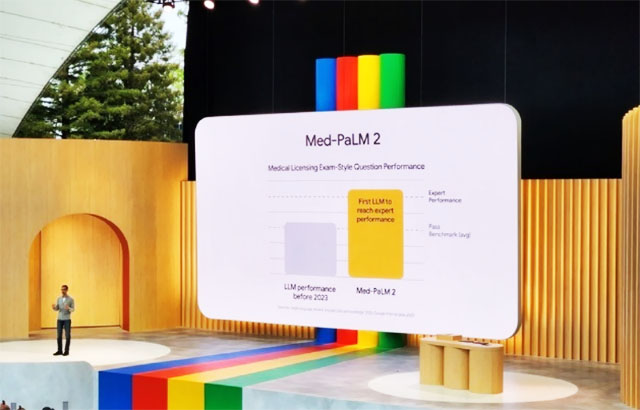With the AI boom driven by ChatGPT, a generative AI chatbot, sweeping the world, many countries are pushing hard for the development of the AI field. In this regard, Japan is one of the most proactive countries.
As Japan is facing a serious problem of population decline, Japan has high hopes to rely on artificial intelligence to solve the problem of labor shortage. The Japanese government has also taken a lot of initiatives in the recent past to actively promote companies in an attempt to develop its own AI technology.
However, despite the Japanese government's active development of AI, ChatGPT has recently been recognized as wrong even by the Japanese Prime Minister.
ChatGPT even recognized the Japanese Prime Minister wrongly?
On Monday, local time, Japan's Minister of Digital Transformation Taro Kono said in an interview, "I asked ChatGPT who Taro Kono was and he gave the wrong answer, so you need to be careful (with AI)."
Kono revealed that when he asked ChatGPT about his identity, ChatGPT incorrectly referred to him as "the Prime Minister of Japan.
Although Kawano is often considered the most suitable candidate for prime minister in Japanese media polls, he lost the 2021 runoff for the LDP leadership to Fumio Kishida, who is the current prime minister of Japan. In the past year, Taro Kono was appointed as Japan's Minister of Digital Transformation.
Despite the embarrassment of being misidentified as prime minister, the Japanese government has not lost its enthusiasm for artificial intelligence.
Taro Kono's comments come as Japanese Prime Minister Fumio Kishida has just set up a group to study the economic potential and risks of AI and hopes to take a lead role in regulating AI technology as the rotating presiding country of the Group of Seven (G7) this year.
Wants to promote development of Japanese version of ChatGPT
The fact that ChatGPT misidentified the Japanese prime minister may be a side reflection of the lack of information in its Japanese language database.
"We are more eager to try new AI technologies," he added, adding that the Japanese government is in discussions with Microsoft Corp. and other tech giants to create Japanese-related datasets, "which are not large compared to English, so there may be bias."
Echoing Kawano's thoughts, SoftBank Group's mobile division announced just last week that it will join the AI technology race and push for the development of a Japanese language version of ChatGPT.
Kawano also stressed that "robots will not pose a threat to Japan's workforce" as the country's population is declining.
Japanese government hopes to use AI to improve administrative efficiency
The Japanese government has long been criticized for administrative inefficiency and cumbersome government paperwork, for example, the Japanese government still uses a lot of old technology such as fax machines and floppy disks in its paperwork.
And after Kawano was appointed as minister of digital transformation last year, he has been trying to push hard to reform the Japanese government in this area - and artificial intelligence may be just one of the powerful ways to achieve his vision.
Kono said he is seeking to pass a bill as soon as this month that would require the government to stop using older technologies such as fax machines altogether.
In addition, some local governments in Japan, such as Yokosuka City, have already experimented with using ChatGPT to assist with office work in government operations. However, there are some local officials who are concerned that this could trigger problems such as data leaks.





Comments0